At TrustPoint Hospital we believe education is an important first step in the effort to heal from PTSD. Understanding the signs, symptoms, and effects of PTSD can help you get the right type and level of care for yourself or a loved one.
Understanding PTSD
Learn about PTSD
Posttraumatic stress disorder, which is commonly referred to as PTSD, is type of mental health disorder that includes a variety of distressing symptoms that occur in the aftermath of a person’s exposure to one or several traumatic events. Examples of events that may precede the development of posttraumatic stress disorder include, but are not limited to, physical attack, sexual assault, automobile accident, verbal harassment, life-threatening medical event, and military combat. People who are directly involved in such experiences can develop PTSD, as can individuals who witness such occurrences or who learn that such an event has happened to a loved one.
When a person develops PTSD, he or she may have nightmares and/or dissociative reactions (or flashbacks) related to the trauma, and may also be subject to recurring and unavoidable distressing memories of the event. Such symptoms may cause a person with PTSD to suffer from disrupted sleep patterns as well as a desire to avoid people, events, or experiences that remind him or her of the trauma. As a result, PTSD can lead to involuntary alterations in an individual’s attitude, mood, and perception.
As is indicated later on this page, PTSD can also increase a person’s risk for struggling with a variety of co-occurring conditions. With proper professional care for PTSD, though, individuals can learn to manage their symptoms, regain control over their thoughts and actions, and resume their pursuit of healthier futures.
Statistics
PTSD statistics
The National Center for PTSD reports that the lifetime prevalence of PTSD among individuals in the United States is about 8.7 percent, with about 3.5 percent of individuals likely to be struggling with this disorder in any given 12-month period. Women have an increased risk for PTSD, with the National Center for PTSD noting that the prevalence of PTSD among U.S. women is about 10 percent, compared with about 4 percent for men in the U.S. The awareness organization PTSD United notes that about seven of every 10 adults in the United States, or more than 223 million people, will experience at least one traumatic event in their lifetime. PTSD United data also indicates that about half of all people who receive outpatient mental health treatment have PTSD.
Causes and Risk Factors
Causes and risk factors for PTSD
In order for posttraumatic stress disorder to occur, a traumatic event or series of events must take place. However, a variety of additional internal and external factors may influence whether or not a person’s response to that trauma will develop into PTSD. The following are among the genetic and environmental risk factors that may raise a person’s risk for PTSD:
Genetic: Advances in genetic research have enabled experts to identify certain genotypes that appear to influence whether or not a person who has been exposed to trauma will develop PTSD as a result of that experience.
Environmental: People who live or have lived in poverty, who have lower educational progress, whose family history includes mental illness, and/or who have experienced childhood adversity may be at increased risk for developing PTSD in the aftermath of a traumatic event or events. Factors such as the severity of the traumatic event, ongoing exposure to reminders of the event, additional adverse life events, and the presence or lack of strong social support may also influence a person’s risk for developing PTSD.
Risk Factors:
- Personal history of mental health issues
- Gender (women are more likely to develop PTSD than men are)
- Age (being younger during a traumatic event or events can increase the likelihood of PTSD)
- Poverty
- Insufficient social support
- Lower education level and/or intelligence
- Poor coping skills
Signs and Symptoms
Signs and symptoms of PTSD
A person who develops PTSD may experience a variety of distressing and potentially dangerous symptoms, including the following:
Behavioral symptoms:
- Abusing alcohol or other drugs
- Avoidance of certain people, events, and/or situations
- Reckless, risky, dangerous, or otherwise self-destructive behaviors
- Fighting, property destruction, and other violent behaviors
- Diminished participation in significant activities
Physical symptoms:
- Hyperarousal
- Disrupted sleep patterns
- Exaggerated startle response
Cognitive symptoms:
- Recurrent distressing memories
- Impaired ability to concentrate and focus
- Vivid and disturbing nightmares
Psychosocial symptoms:
- Dramatic mood swings
- Depersonalization
- Derealization
- Persistent negative mood
- Hypervigilance
- Emotional withdrawal
Effects
Effects of PTSD
Without effective care, a person who struggles with posttraumatic stress disorder can experience a myriad of negative effects and outcomes, including, but not limited to, the following:
- Substance abuse
- Inability to establish or maintain interpersonal relationships
- Strained or ruined personal and professional relationships
- Family discord
- Substandard occupational performance
- Chronic unemployment
- Physical harm due to violent or reckless behaviors
- Development or exacerbation of additional mental health disorders
- Homelessness
- Suicidal thoughts and attempts
Co-Occurring Disorders
PTSD and co-occurring disorders
People who develop PTSD may be at increased risk for the following co-occurring disorders:
- Substance use disorders
- Depressive disorders
- Anxiety disorders
- Bipolar disorders
- Major neurocognitive disorder






